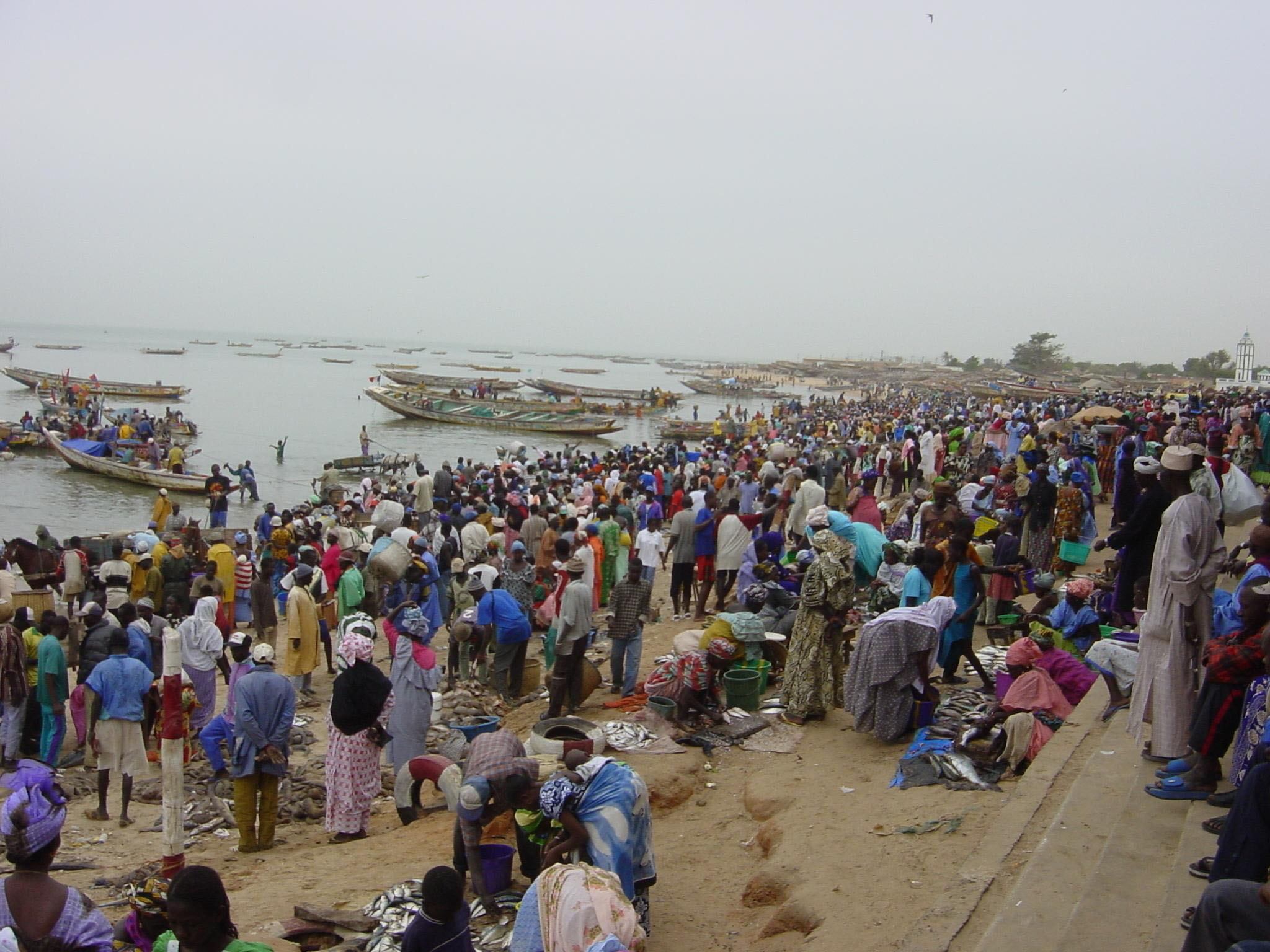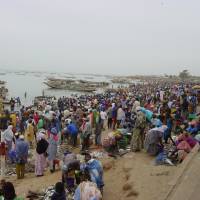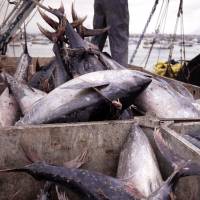"The long-held barriers between nature and culture are breaking down. It's no longer us against 'nature.' Instead, it's we who decide what nature is and what it will be," Nobel-laureate scientist Paul Crutzen and journalist Christian Schwagerl concluded in an article titled "Living in the Antropocene: Toward a New Global Ethos" published in Yale Environment 360 in January 2011.
Their take on the Anthropocene — human dominance of biological, chemical and geological processes on Earth — is not new, of course. For instance, in 1989 the renowned U.S. environmentalist Bill McKibben wrote a book titled "The End of Nature," in which he observed that the awesome power of nature is now in the hands of humans. The proof? Human activity is driving global warming and climate change that is altering our planet.
So the wild and natural world our ancestors fought for millennia to master and subdue is now as much our creation as its own. But ironically, we are now as much as ever at the mercy of nature — and perhaps more — due to the new biosphere we are concocting.
For those not yet convinced of this, there is nowhere better to look for proof than the ocean. This month a perfect storm of ocean-research results has been released, and the conclusions are truly alarming. Or, in the vernacular, they're as scary as hell.
The first of these is an evaluative index to guide policymakers, the second is born of scientific research on how greenhouse-gas emissions are creating ecosystem-wide changes in the ocean, and the third comprises a set of five reports compiled at workshops of international experts over the past two years.
The Executive Summary released with the five reports sums up where we stand: "The risks to the ocean and the ecosystems it supports have been significantly underestimated; the extent of marine degradation as a whole is greater than the sum of its parts; and it is happening at a much faster rate than previously predicted." ("The State of the Ocean 2013, Perils, Prognoses and Proposals.")
From dying coral reefs and declining fish stocks to widespread pollution and the spiraling impacts of anthropogenic global warming, we are blithely abusing our planet's largest and least-understood ecosystem. Most alarming of all is what we don't know: How the present degradation and biogeochemical changes in the ocean will create harmful synergies that will change our planet forever.
Of the three bodies of research, the least pessimistic is the "Ocean Health Index." This is — according to Conservation International, one of the founding partners of the Index — an "assessment tool that scientifically compares and combines key elements from all dimensions of the ocean's health — biological, physical, economic and social." The other two partners are National Geographic and The New England Aquarium.
The Index, now in its second year, is the work of more than 65 ocean experts at institutions and organizations worldwide. It aims to help policymakers by setting out 10 goals that can be used to compare "different aspects of ocean health and different locations in a way that is not possible with current assessment tools."
The 10 measures of ocean health used in the Index are: artisanal fishing opportunities, biodiversity, coastal livelihoods and economies, clean waters, carbon storage, coastal protection, sense of place, tourism and recreation, natural products, and food provision.
Above all, the Index is an excellent primer on what the ocean has to offer, and what we have to lose if we fail to conserve these waters that cover 71 percent of Earth and hold 97 percent of our planet's water.
This year's calculations find that there has been no change in the overall global score since last year. We are still hovering at 60 out of 100, which leaves no room for complacency.
Not surprisingly, the nations with the highest gross domestic products (GDPs) are not topping the charts. In declining order of GDP: the United States, with a score of 67, ranked 75; China (58) ranked 161; Japan (66) ranked 87; Germany (68) ranked 59; and France (73) ranked 31.
Nigeria is in last at 210, with a score of 47, and the Heard and McDonald Islands (an Australian external territory in the Southern Ocean about two-thirds of the way from Madagascar to Antarctica) sit in first place with a score of 94.
One serious concern the Index reveals is the risk to food security, with "food provision" achieving the lowest global score of all 10 measures, at just 30 out of 100. This in a world where more than 3 billion people depend on the ocean, primarily as a food source, according to Conservation International.
Ocean resources are essential to feed our growing population, and careful conservation policies can help — if we take steps to rein in our numbers.
No matter what we do, however, if we do not get greenhouse-gas emissions, such as of carbon dioxide (CO2), under control, we are setting up our children for drastic changes in the essential chemistry of the ocean.
The second piece of research is an article lead-authored by Camilo Mora at the University of Hawaii, Manoa (UHM), that looks at the impacts of greenhouse-gas emissions on climate — including changes in biological and social systems.
"Ongoing greenhouse-gas emissions can modify climate processes and induce shifts in ocean temperature, pH [acidity], oxygen concentration and productivity, which in turn could alter biological and social systems," explains the article, titled "Biotic and Human Vulnerability to Projected Changes in Ocean Biogeochemistry over the 21st Century."
Between now and 2100, "the entire world's ocean surface will be simultaneously impacted by varying intensities of ocean warming, acidification, oxygen depletion, or shortfalls in productivity," the researchers predict.
And, if greenhouse-gas emission trends continue, there is a high risk of marine ecosystem degradation, leading to global, human hardship.
In short, as CO2 and other greenhouse-gas emissions continue to rise, ocean systems will be altered and will inevitably compromise one of our biosphere's key ecosystems.
Finally, the third body of research released this month is "The International Programme on the State of the Ocean 2013: Perils, Prognoses and Proposals."
Similar to the "Ocean Health Index," the IPSO report reflects two years of information-gathering; however, its conclusions are far more worrisome.
Where the Index finds ocean health holding steady, however tenuously, the IPSO workshops concluded that "threats to the ocean were even faster, bigger and closer than the first workshop (2011) set out: faster, with an accelerated rate of change; bigger in scale; and closer in time in terms of the impacts being felt."
The IPSO reports cover five areas of concern: climate change, coral reefs, fisheries, chemicals and ocean management. Echoing the UHM researchers' conclusions, the IPSO report is particularly concerned about the effects of global warming and climate change.
"The ocean is shielding us from the worst effects of accelerating climate change by absorbing excess CO2 and heat from the atmosphere. The twin effects of this — acidification and ocean warming — are combining with increased levels of deoxygenation caused by nutrient runoff from agriculture, and by climate change offshore. The scale and rate of this change is unprecedented in Earth's known history and is exposing organisms to intolerable and unpredictable evolutionary pressure," states the IPSO Executive Summary.
Rising emissions of CO2 and other warming gases are also undermining the health of coral reefs. IPSO calls for stabilizing and reducing these emissions as soon as possible, in conjunction with comprehensive local and regional programs to reduce stress on reefs and boost their resilience. If not, the researchers report, "It is predicted that most reefs will be lost as effective, productive systems within a few decades."
Decades. That's within the lifetime of most of us on the planet.
As for fisheries, the IPSO report states that "recent more optimistic outlooks are misplaced," adding that the "ongoing depletions of fish stocks, the degradation of food webs, threats to seafood security and poor quality of most fishing management is alarming."
Chemical pollution, too, is a "critical, unresolved problem," the IPSO report tells us, calling for immediate steps to protect "marine ecosystems and seafood resources from the adverse effects of complex cocktails of 'legacy' (already regulated contaminants), emerging (unregulated) chemicals, and natural chemicals (e.g. algal biotoxins)."
As this month's wave of research results confirms, from climate to chemicals, we are rapidly abusing Earth's support systems without the means to clean up our mess.
"The current system of high-seas governance is fraught with gaps, directly leading to the mismanagement and misappropriation of living resources and placing our ocean in peril," warns the IPSO rep ort.
From the "Ocean Health Index" to the most recent climate research and the IPSO workshops, the conclusions are much the same. As the IPSO report puts it: "Deferring action will increase costs in the future and lead to even greater, perhaps irreversible, losses. If we want to continue to benefit from the goods and services the ocean has provided for millennia, we must radically change the way we view, value, use and govern marine ecosystems."
So congratulations. We've done it. After centuries of blood, sweat and tears, humans now rule the planet.
Which presents us with a choice of the greatest consequence: We can stay on this course and degrade the biosphere so irrecoverably that we lose the ecosystem services necessary for our children's survival, or we can put our awesome power to wise and good use, cleaning up and conserving our unique planet.
The choice, quite simply, is now ours.
Stephen Hesse is a professor in the Law Faculty of Chuo University and is associate director of Chuo International Center. He can be reached at [email protected].




















With your current subscription plan you can comment on stories. However, before writing your first comment, please create a display name in the Profile section of your subscriber account page.